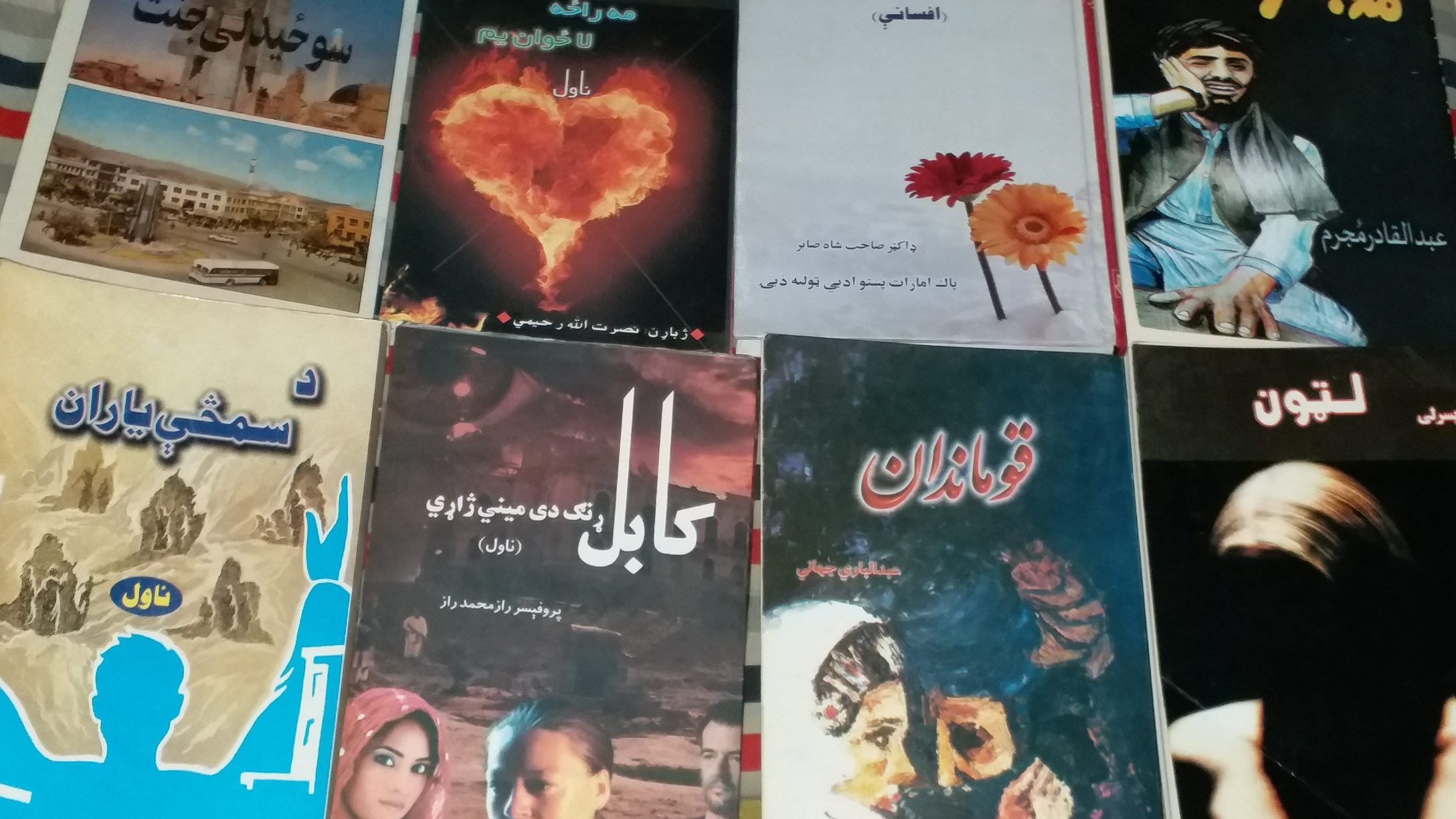Mati Ullah, an owner of College Bookstore, a leading bookshop in Kabul, says that since the Saur Revolution in 1978, novelists have published more than 400 books on the war in Afghanistan in English, Pashtu, and Dari. Since the war began in 1979, war issues arose as the most popular topic in fiction writing in Afghanistan. The novelists of Afghanistan have written extensively on the war and its harsh stories, and it is still their central theme. In telling stories about the grief of war, they raise consciousness against the war in the people. They create disgust with turmoil and violence, and promote humanism. This literature developed as a logical and effective enemy of conflict, as it has a strong impact; it can change people’s mindset, and make them turn against terrorism.
The war novels describe the daily suffering of the war, including the pain of the people, their displacement, and the destruction of schools. Two types of people read these novels avidly. First, the victims who lost their loved ones and suffered, who seek stories similar to their own in these novels. Second, the readers who want to explore the unexpected and incredible events that have taken place across the country in the last four decades.
The destruction of terrorism thus created a powerful literary tradition.
Writing the truth over this period was entirely prohibited. Many writers who opposed the Taliban and other religious groups were killed or imprisoned, or fled the country. In the Mujahideen and Taliban’s regime, most of the books written on the war were burnt, and the literature of the time disappeared from history. More than a hundred novels disappeared, as the regime understood them to oppose their ideologies. In addition, the Taliban devastated all libraries and bookstores across the country, including the National Library and the library of Kabul University.
But the war novel fared better than other types of writing during the war. With its recourse to imaginary characters, the novel form provided writers with a certain degree of safety. Mati Ullah estimates that more than 70 percent of the novels published in Afghanistan over the past four decades are concerned with the war.
The novel thus grew into one of the most effective ways to reveal the troubles, tell the ferocious stories of people in the war and communicate with the victims. Novels have been written on every aspect of the war. The themes of novels in Afghanistan are different from those in the rest of the world because the issues of Afghanistan are completely different from those in the peaceful world; the main issues of the Afghans are migration, suicide attack, massacres, psychological diseases, and starvation.
One common theme is the brainwashing of youth. Muhibullah Zagham’s Zanmargai (“Suicide Bomber”) is one such famous work; thousands of women who lost sons have read the book and recommended it to other victims. The story is about the brainwashing of ordinary people, and how they are drawn into Jihad and suicide attacks. Zagham writes of the extreme pain and real issues faced in Afghan society by the people who lost their relatives.
For many, reading these novels is a way of expressing rage. Many victims say as their loved one’s memories come to their mind, they immediately begin reading these stories.
The issues are not limited to the battleground between Afghan forces and the Taliban. Sometimes killing among them also creates tribal enmities which continue for years. There are novels describing the troubles families have to face in the Afghan tribal society when their one of their number is killed or kills opponents in the battle between the Afghan Army and Taliban.
Rahim Rahimi, an employee of Kabul Library, Afghanistan’s largest, says that almost 85 percent of fiction readers in the library read novels about the Afghan conflict. The reading of war novels is now part of the universities’ culture, as well. Without these novels, learning the history of tragedies and war crimes would be difficult. They exposed all players in the war, and its beneficiaries; they revealed the real characters behind the war, those who created it, and the past and current proxies in Afghanistan.
Novelists not only gave voice to the pain of the people and recorded the horrors of war: From 1980 to the fall of the Taliban government in 2001, readers know that a lot of literature was lost, so that in many cases the only history that remains to us was saved in the novels. The Afghan war novels are, in a very real sense, history.
Hizbullah Khan






